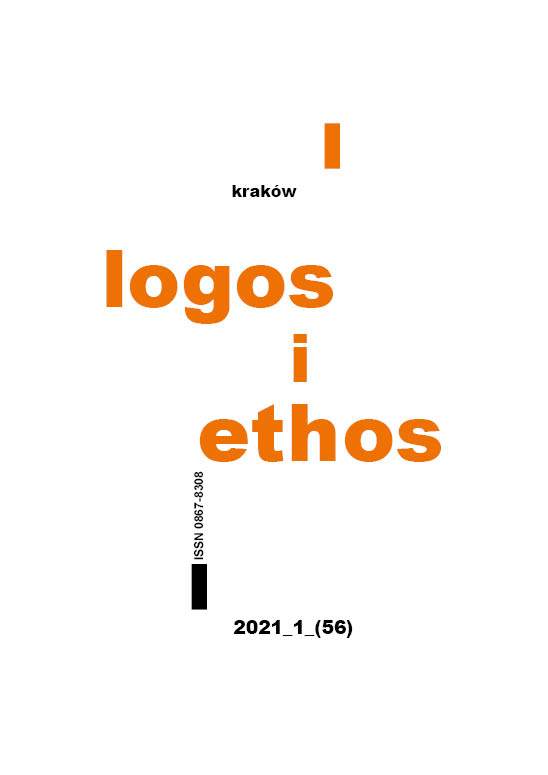Zmierzch mistrzów i brzask bożyszcz. Ojca Bocheńskiego teoria autorytetu
DOI:
https://doi.org/10.15633/lie.3938Słowa kluczowe:
Józef Maria Bocheński, autorytet, Arystoteles, miłość wzajemna, bratnia dusza, technologiaAbstrakt
Zjawisko autorytetu należy do zjawisk najważniejszych w życiu społecznym, a jego pojęcie do najtrudniejszych w teoretycznym ujęciu. Na tle obszernej literatury przedmiotu wyróżnia się niezrównana rozprawa ojca Jana Marii Bocheńskiego Co to jest autorytet? z roku 1974. Autor daje w niej 88 tez z metafizyki człowieka, charakteryzujących autorytet.
Teza główna głosi, że „każdy autorytet jest autorytetem epistemicznym albo deontycznym”. Teza ta jest wątpliwa, lecz wywody Bocheńskiego niezwykle jasne – stwarzające w ogóle możliwość budowania teorii autorytetu. Autor niniejszego artykułu twierdzi, że zasadniczy podział autorytetów dzieli je na osobowe i instytucjonalne, te pierwsze zaś rozpadają się na bratnie i sekciarskie. Bratni autorytet osobowy to „miłość wzajemna do osoby, między nierównymi” – kategoria podstawowa, wyróżniona przez Arystotelesa. Jest on zawsze epistemiczno-deontyczny. Jako wzorzec zachowań silnie jest obecny także w Chinach czy Indiach. Bocheński go nie docenił.
We współczesnym świecie Zachodu ma miejsce „upadek autorytetów” czy, inaczej mówiąc, „dominują autorytety fałszywe”. Oznacza to, że brakuje autorytetów bratnich, czyli mistrzów, a plenią się autorytety sekciarskie oraz związki typu idol-fan (kwitną „bożyszcza”). Upadek autorytetu jest skutkiem rozwoju technologii, która zasadniczo odmieniła warunki ludzkiego życia, utrudniając rozpoznawanie bratnich dusz.
Bibliografia
Aforyzmy chińskie, tł. M. J. Künstler, Warszawa 1977.
Arystoteles, Etyka nikomachejska, tł. D. Gromska, Warszawa 1996.
Bocheński J. M., Co to jest autorytet?, w: J. M. Bocheński, Logika i filozofia. Wybór pism, Warszawa 1993, s. 187– 324.
Bocheński J. M., Sto zabobonów. Krótki filozoficzny słownik zabobonów, Kraków 1994.
Clements J., Konfucjusz, tł. A. Mazurska, Warszawa 2007.
Dostojewski F., Bracia Karamazow, przeł. A. Wat, Warszawa 1984.
Fleck L., Psychosocjologia poznania naukowego, Lublin 2006.
Tasak A., Autorytet władzy – władza autorytetu. Autorytety w polskiej przestrzeni publicznej, „Annales Universitatis Paedagogicae Crakoviensis. Studia Politologica” 15 (2015), s. 193–204.
Tuziak B., Autorytet jako zjawisko społeczne. Wymiar lokalny, „Studia Socjologiczne” 197 (2010) nr 2, s. 53–88.
Weber M., Szkice z socjologii religii, tł. J. Prokopiuk i H. Wandowski, Warszawa 1984.
Wolniewicz B., Filozofia Suszki, w: B. Wolniewicz, Filozofia i wartości, III, Warszawa 2003, s. 63–72.
Wolniewicz B., Wstęp do filozofii. Wykład dla studentów I roku Instytutu Filozofii UW w roku akad. 1985/86 (spisał Paweł Okołowski), „Edukacja Filozoficzna” 64 (2017), s. 161–219.
Pobrania
Opublikowane
Numer
Dział
Licencja
Autorzy publikujący w czasopiśmie udzielają jego wydawcy zgody o następującej treści:
- Autor zachowuje autorskie prawa majątkowe do utworu, a jednocześnie udziela wydawcy czasopisma zgody na jego pierwszą publikację w wersji drukowanej i wersji online na licencji Creative Commons Uznanie autorstwa 4.0 Międzynarodowe oraz zgody na wykonywanie opracowań, w tym przekładów.
- Autor ma możliwość udzielania zgody niewyłącznej na opublikowanie utworu w wersji, która ukazała się w czasopiśmie (np. zamieszczenia go w repozytorium instytucjonalnym lub opublikowania w książce), wraz z informacją o jego pierwszej publikacji w czasopiśmie.
- Autor może umieścić swój utwór online (np. w repozytorium instytucjonalnym lub na swojej stronie internetowej) jeszcze przed zgłoszeniem utworu do czasopisma.

